Space Engineers How to Find Ice on Alien Planet Easy Start
Space Engineers is a wonderful sandbox game focused on engineering and exploration in space. The game spent a good five years in early access before releasing fully in 2019. Since then, the game has had many significant updates to keep you occupied, from new scenarios to play through to discovering new factions and NPCs.
Although you could just float around space, building ships, stations, and outposts, a key selling point of the game is its unique planets. The game first introduced planets in an update in November 2015, and more have been added since then. They offer a unique challenge and are worth checking out. There are currently five types of planets to explore, each one offering an unforgettable experience. So, strap on your spacesuit and get ready to crash down onto a new planet.
8 The Similarities Between Planets
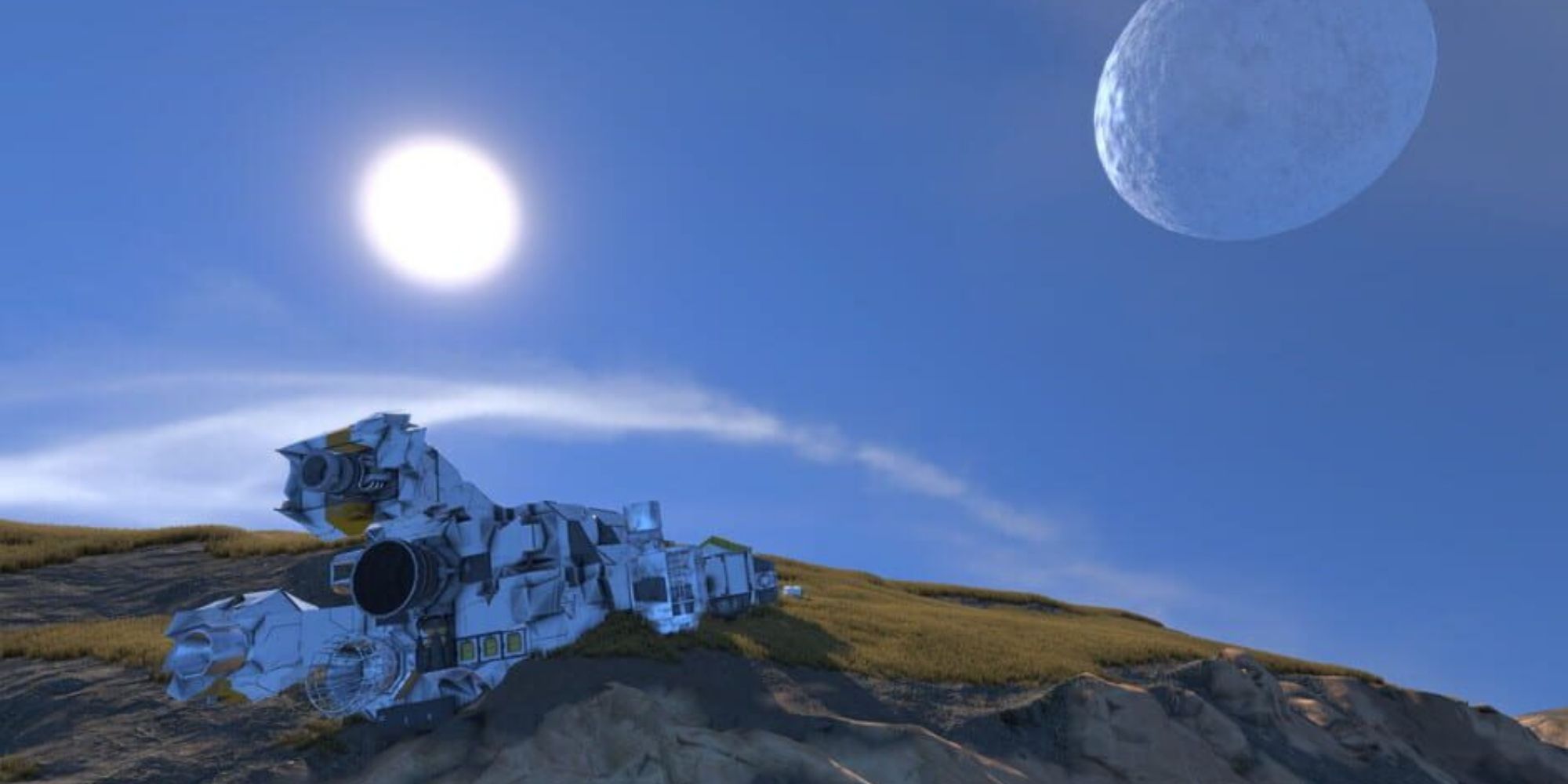
For the most part, each planet is different, from its atmosphere and gravitational pull to its size (often around 19km to 120km in diameter). But, some things will always be the same no matter what planet you venture onto.
Each planet, much like asteroids and moons in the game, will not move along its orbit in the Solar System. It remains static, in place, and will not be drawn in by gravitational pulls of other assets in the game. For example, two planets spawning incredibly close to one another will not converge. Despite being immovable, each planet is still wholly destructible.
Although it might seem like it, the planets are not procedurally generated. Although each type of planet is different, each one of the same type, such as a Mars-like planet, will have the same surface layout. If the planet is bigger, its model is stretched to accommodate.
What is randomized is what can be found on the planet's surface. There will always be a randomized selection of ores to mine, located in boulders. These can be invaluable, especially when attempting to survive and find your way back off the planet. You'll need to work hard to extract these resources.
There will also always be a variety of hostile threats on the planet, such as pirate bases. These bases are not randomized. There will always be a set number of them on a planet, depending on the difficulty.
7 Earth-like Planets
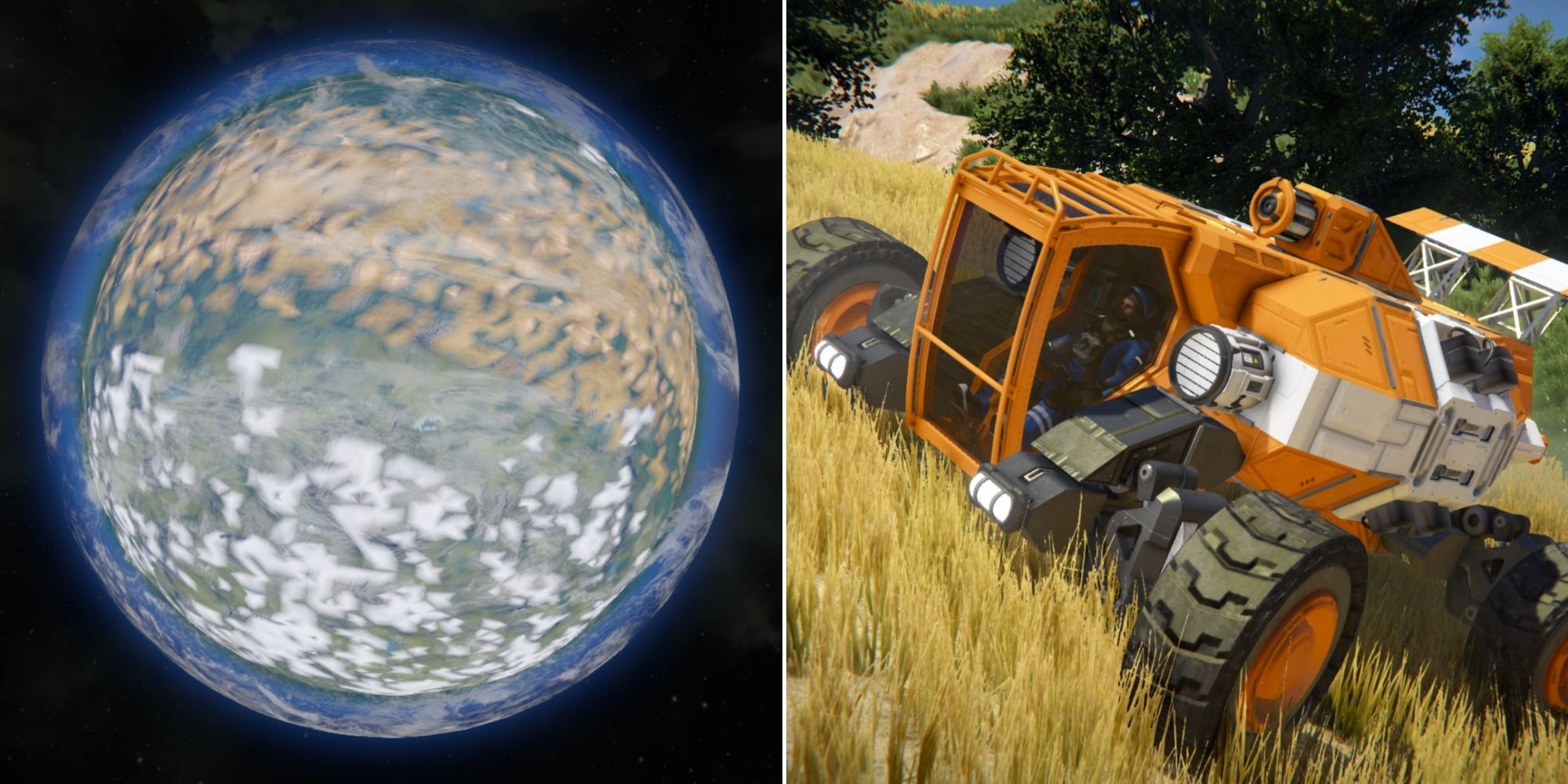
Earth-like planets will have plenty of familiar aspects to the real Earth. Its plant life and the environment consists of plenty of trees, grass, blue skies, and animals. You might encounter wild wolves and dogs during your explorations. Eath-like planets are a lot more varied than the other planets in the game. It can have different types of terrain to navigate, varying climates to get used to, and randomized scarcities for different ores. No matter what, though, you are likely to find plenty of Nickel, Silicon, Iron, and Magnesium when striking the various boulders.
This planet was the first to be added to Space Engineers. It is easy to survive since you can stroll around without a spacesuit or helmet with plenty of Oxygen. The temperature ranges from freezing to warm, and its gravity is just like Earth itself. With a distinct lack of Platinum and Uranium Ore, Earth-like planets can be challenging to depart from, so grab your handy tools and get to work!
6 Mars-like Planets
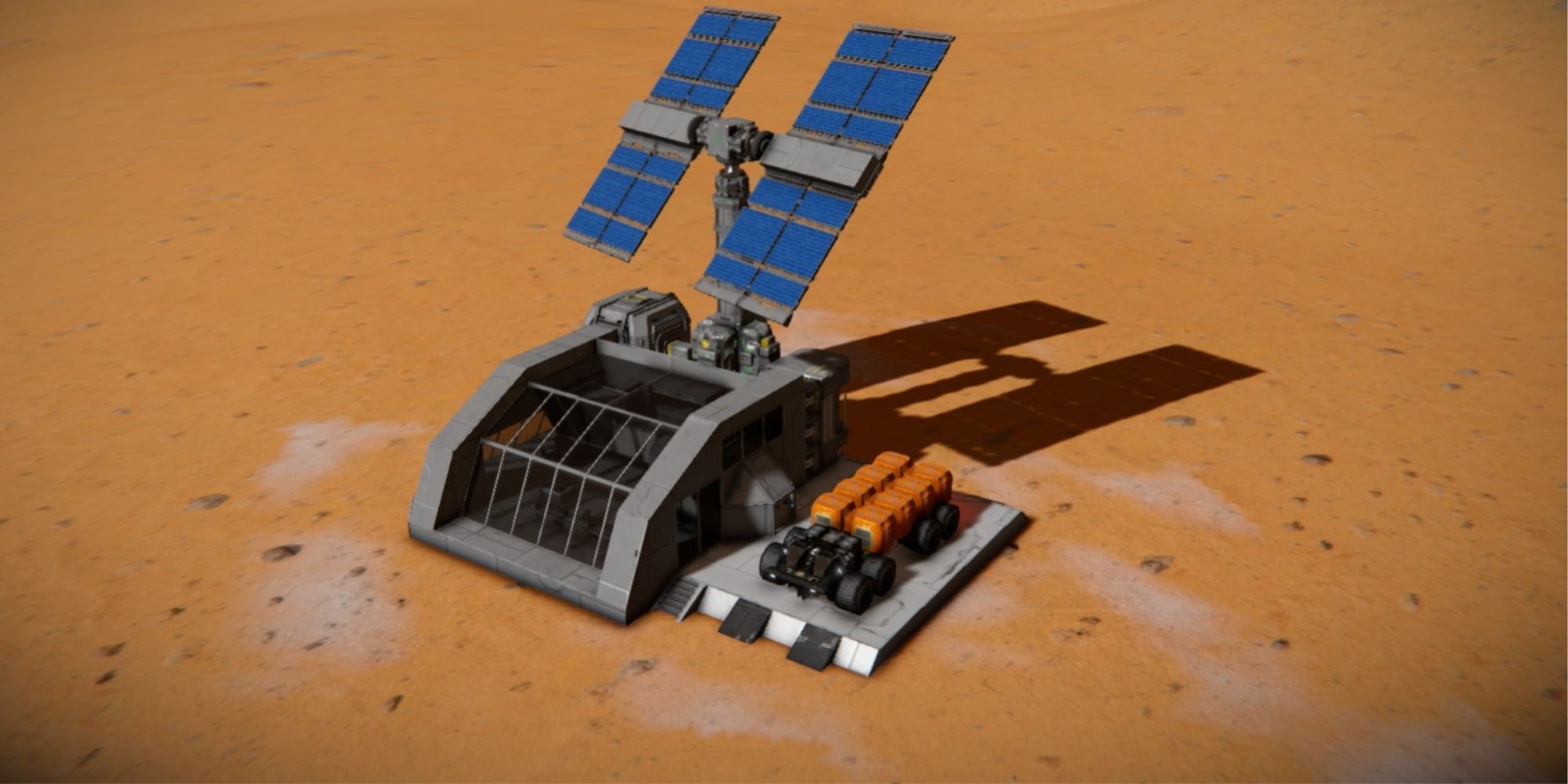
The Mars-like planets were the second to be added to the game. They offer a far higher challenge in terms of survival than Earth-like planets. There is no Oxygen, and the planet has a lighter gravitational pull. This makes it easy to enter the atmosphere but tricky to escape. Alongside this, you'll be facing freezing temperatures most of the time. You are also likely to get random sand storms to deal with too.
In terms of the environment, Mars-like planets are pretty barren, with boulders scattered quite sparingly. Mars is quite a rocky, flat landscape, with enormous mountains every so often. It can be tricky to navigate but necessary if you want to have a chance of finding Ice. The best places to look are snow-capped hills or large Ice lakes.
5 Triton
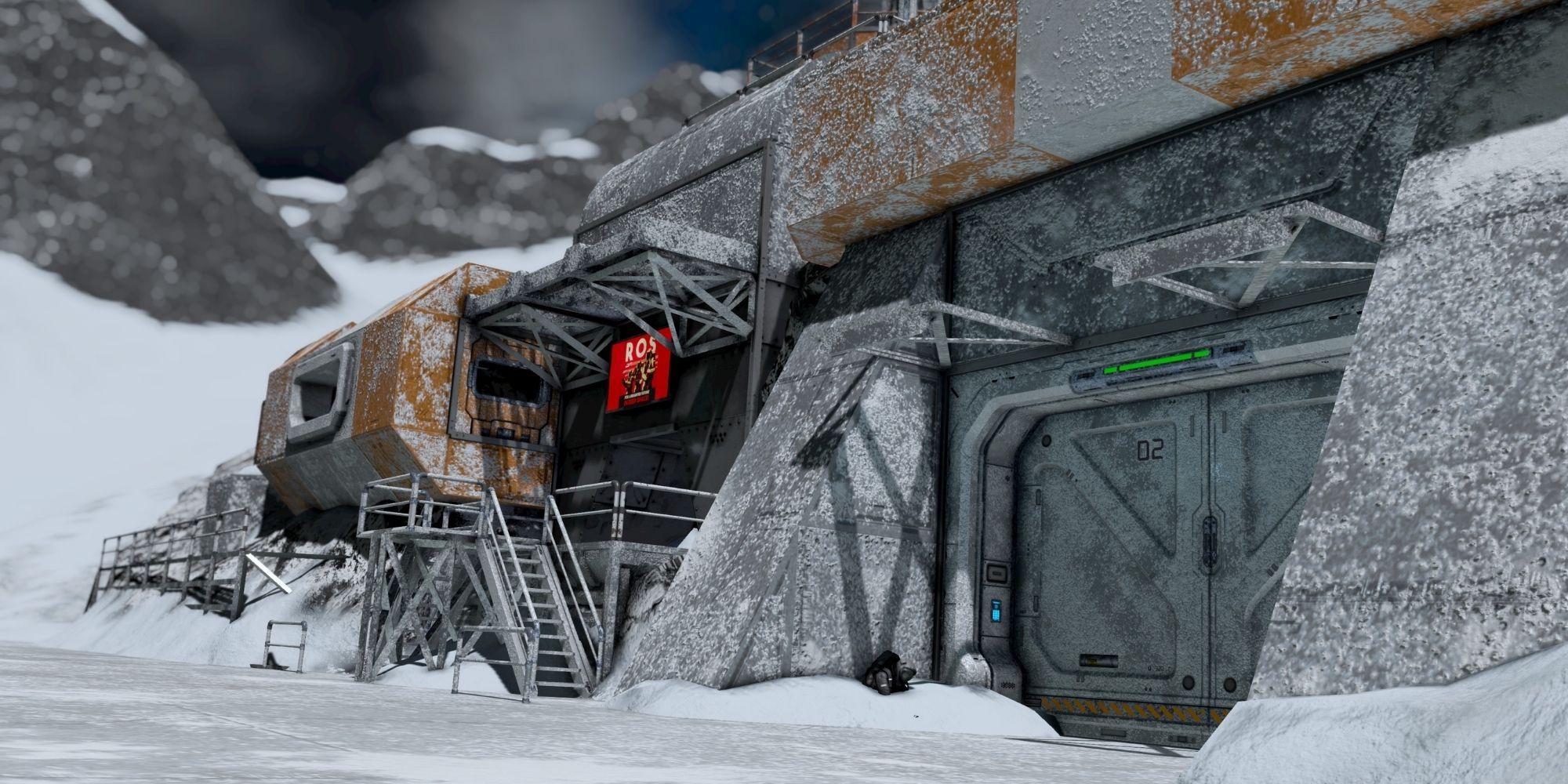
It can often be tricky to escape a planet like Triton, so make sure you have your thrusters ready. This Ice-cold planet was introduced during the Frostbite DLC. It has every ore in the game available except for Uranium and Platinum. It has no oxygen except for a few lower regions, a similar gravitational pull to Earth, and freezing temperatures. The planet also has several Ice lakes and snowy mountains to explore.
It isn't the most challenging planet to survive on, though, as it is easy to transverse using Rovers and has plenty of resources to mine. Anyone can land on the planet, but you will not be able to insert it into your own world without the DLC being purchased.
4 Pertam
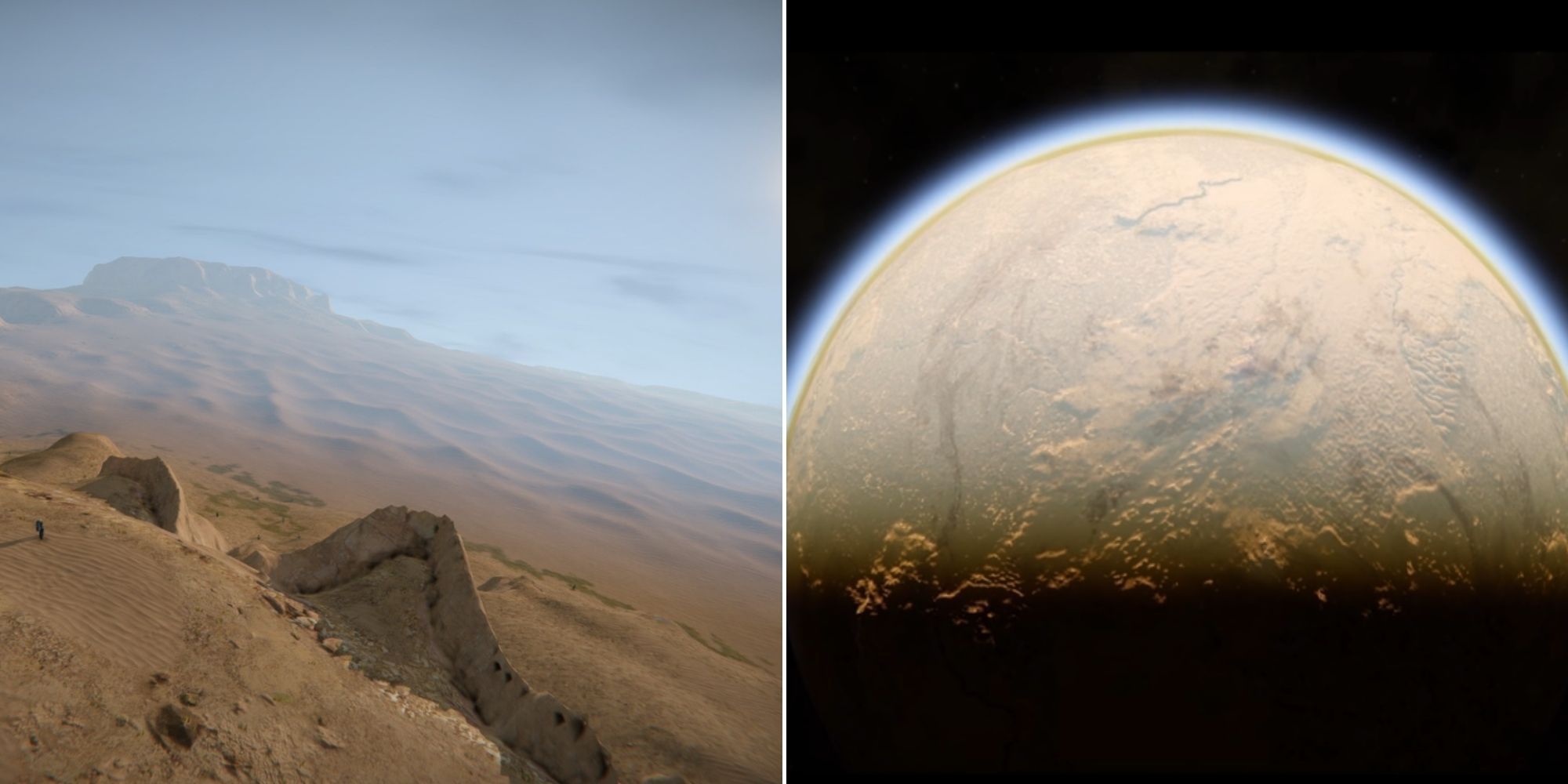
Pertam is a fantastic planet to explore, with its vast desert plains. The planet was released with the Wasteland Update and was designed to allow you to have an interesting landscape to test your Rover on. The planet has large canyon systems and mountains as well. These obstacles ensure an entertaining challenge for driving and trying the various vehicle upgrades the Wasteland Update also came with.
Pertam has a heavier gravitational pull than other planets, making it more difficult for Hydrogen-based ships to navigate. It lacks ice and has low oxygen levels unless you are in its deep canyons. It is undoubtedly a chaotic planet. Its weather can shift from cold to inferno heat levels, making it quite tricky to prepare for. For those looking for a brutal starting planet to survive on, Pertam is your best pick.
3 Alien Planets
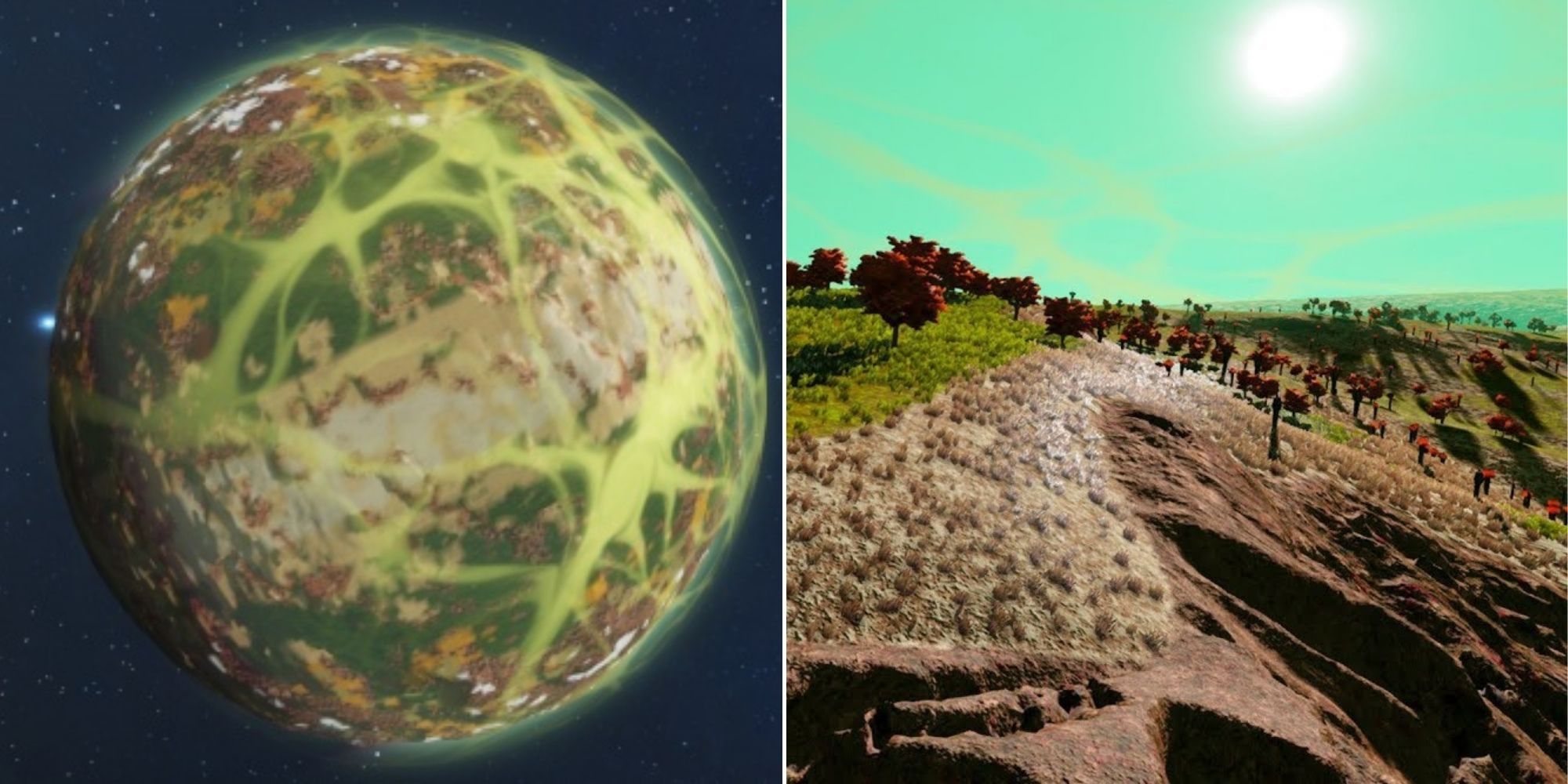
Although some might be content in spending time in their fancy Space Stations, for others exploring mysterious alien planets is quite an adventure. It can be challenging to use wheeled rovers across its varied terrain because there are many steep curves and sudden cliffs. There are deserts, forests, and mountains to venture into as well. All ores except for Uranium are available. They just need some exploration to track down, especially Ice.
Alien Planets have a heavier gravitational pull, low oxygen, and usually freezing temperatures. The environment isn't the only threat on this planet, as there will be alien lifeforms to encounter as well... and they might not be the friendliest of hosts during your visit. Overall, Alien Planets offer a unique challenge but are rather exciting.
2 The Moons
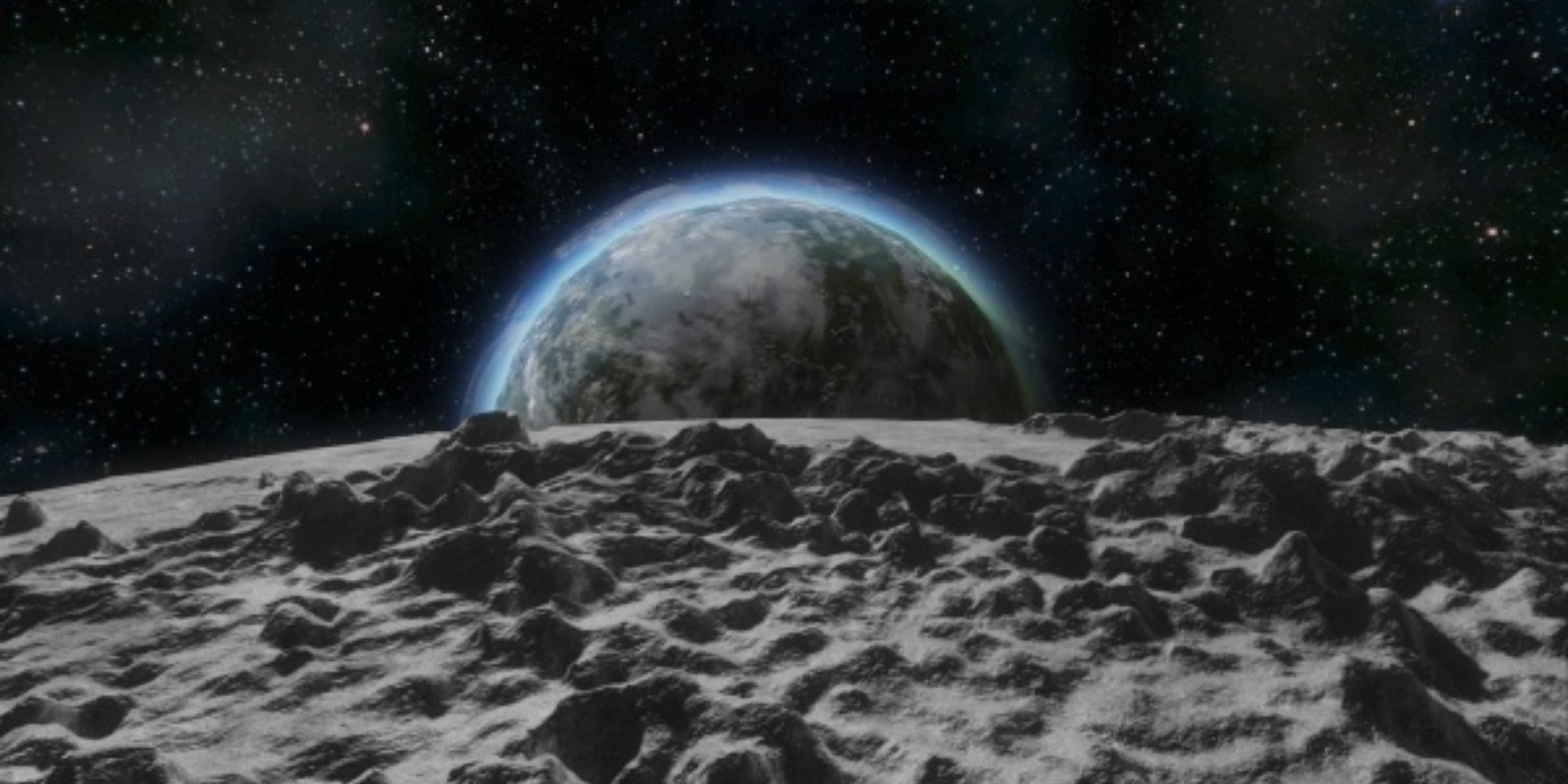
Except for Pertam and Triton, most planets you will encounter will always have their own moon within their orbit. Like the planets, these moons will not actually move, but you can explore them all the same. Earth-like planets will have a moon similar to our own. It has no oxygen, is freezing, and has very low gravity.
Mars-like planets will have the Euroa moon in their orbit. It has a similar atmosphere to Earth's Moon but is also mainly formed of Ice. Finding other types of ores can be pretty tricky when trying to survive here.
Alien Planets will have the Titan Moon floating nearby. It is pretty similar to Mars with a rocky landscape. Titan can be incredibly dangerous as it is full of monstrous aliens known as Sabiroids.
1 Planets In Creative Mode
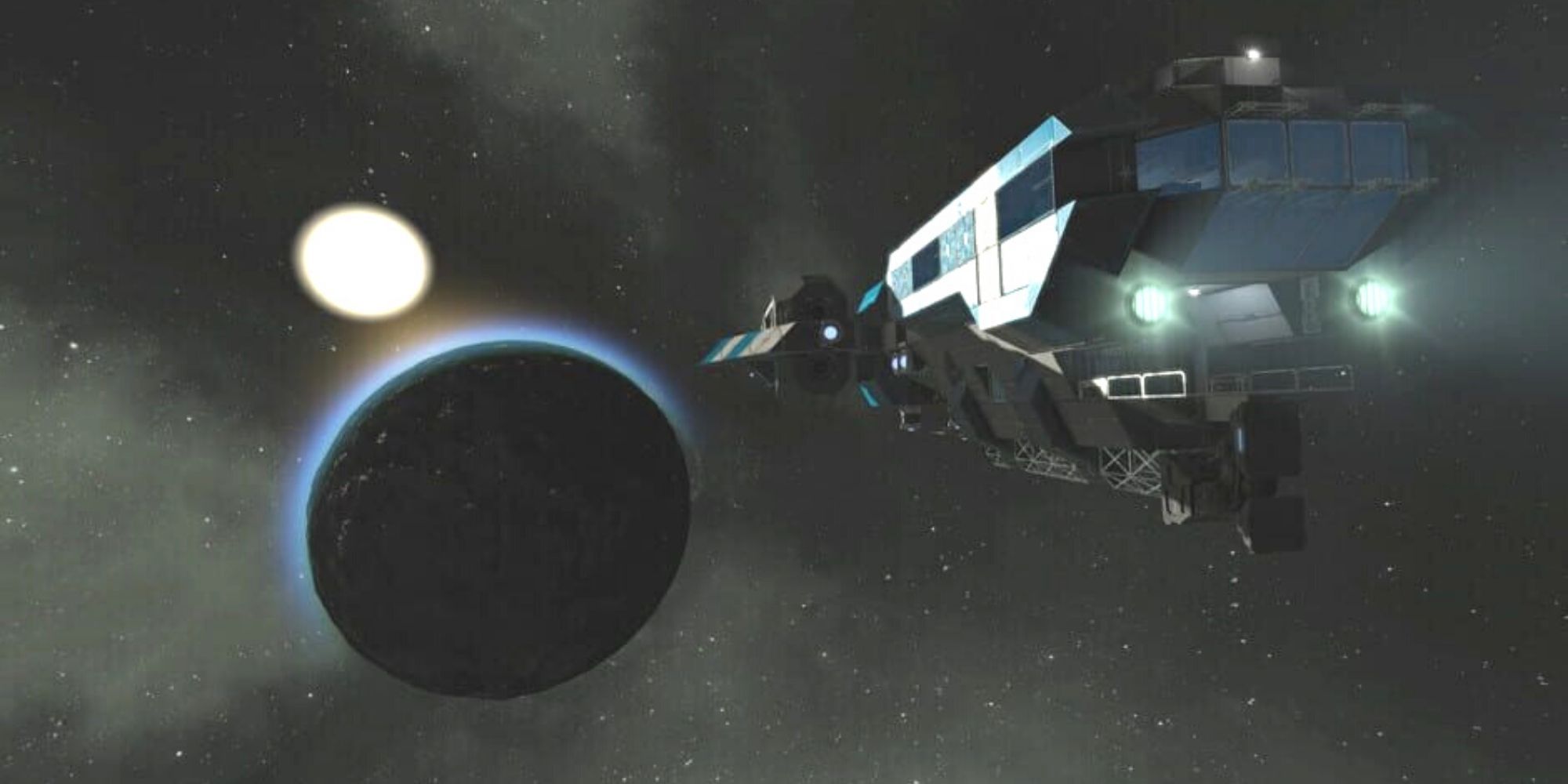
In Space Engineers, it is possible to create your own star system by going into Creative Mode. Unlike in Survival Mode, you require no components, and every block you craft is constructed instantly. This also includes creating your very own planets. Simply head to the Spawn Menu, select Planets from the drop-down menu, and spawn it in.
You can randomly generate a planet with various sizes and surface variations. Each variation has a unique Seed value associated with it. So keep track of this if you have a favorite type of planet you'd like to spawn in. You might need to manually insert a moon for your custom-created planet, as this is not always spawned in alongside it.
Once you've finished messing around in creative mode, make sure to download a few fantastic mods for Space Engineers to add even more amazing content to the game.
Source: https://www.thegamer.com/space-engineers-everything-need-know-planets/
0 Response to "Space Engineers How to Find Ice on Alien Planet Easy Start"
Post a Comment